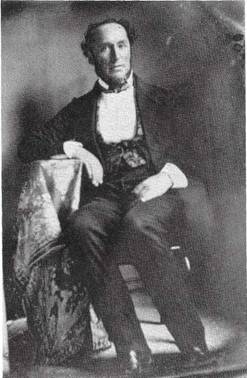 The
gates to the Manor House were located above the bridge which now spans the
Little Beaverkill. From this point to the house the road was lined with maples.
The
gates to the Manor House were located above the bridge which now spans the
Little Beaverkill. From this point to the house the road was lined with maples.Dr. Edward R. Livingston was a son of John R. Livingston and resided at our Livingston Manor on the site of the present Manor House or John R. Baldwin property. Of him, Quinlan in his history of Sullivan County, says; "He was a member of one of the most distinguished families in the State. There was no society however exclusive which did not welcome him to its charming circle. He married a lady of his own station in life. Both were rich and both had reason to anticipate a large measure of the pleasure of this world. But for some unexplained cause she became hopelessly insane and spent the remainder of her days in an asylum. Except at brief intervals he lived at Purvis for 40 years. He was noted for his liberality to the Church (Methodist) at Purvis, for kindness to the poor, and for spending large sums of money in building and improving the place'
He would not permit any warmed-up portions of food to be served him; and it is said the same roast fowl or turkey never appeared on his table but once, regardless of the fact that he might be dining alone. He enjoyed hunting and fishing, and fished with the Frenchman De Chandla for whom Shandelee Lake is named. He was not a 'teetotaler' as an old day-book of the store kept by William Sprague at Lower Westfield shows on entry of July 8th, 1824: "Edward Livingston Dr. to 2 1/2 gals, of whiskey at 4 shilling per gal. 10 shillings; 1/2 Ib. Tobacco at 1 shilling; total 10 shilling 6 pence.
 The
gates to the Manor House were located above the bridge which now spans the
Little Beaverkill. From this point to the house the road was lined with maples.
The
gates to the Manor House were located above the bridge which now spans the
Little Beaverkill. From this point to the house the road was lined with maples.
Dr. Livingston's Uncle, Robert R. administered the oath of office to President Washington on his first inauguration in 1790. He was minister to France from 1801 to 1804, and probably to him more than to any other man was due the successful negotiations culminating in the Louisiana Purchase.
The names of twenty-seven Livingstons appear on the muster rolls of New York in the Revolution. Eight of these were officers including three colonels.
Dr. Edward Livingston was proud of his horsemanship, and was something of a painter,—in-fact, he seemed to have talents in various directions. He died without direct heirs; but his pride of family prompted him to attempt to entail his property, which resulted in extended and unhappy litigation for the present land owners in Livingston Manor with his grand-nephew.
Part of the recreational equipment of Edward Livingston's home included a bowling alley -- a fact unwittingly prophetic of a great future industry of the town.
From 1939 Pioneer - Opening of Livingston Manor School